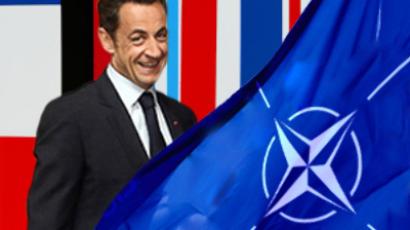New security treaty to form at Greece FMs meeting
Moscow will put forward proposals for a new pan-European security treaty at a Russia-NATO foreign ministers’ meeting on Saturday.
As relations with the Western military alliance are still tense following last summer’s conflict in the Caucasus, these high-level talks are seen as another step in building bridges.
As Georgian bombs stopped falling on South Ossetia in August last year and tanks withdrew from the battlefield, relations between NATO and Russia fell into a deep freeze not seen since the Cold War.
Moscow accused Brussels of backing Georgia’s intervention, while the North Atlantic Alliance stated that Russia had violated ceasefire agreements.
As a result, most joint Russia-NATO military projects were put on hold and meetings of the NATO-Russia council were suspended for more than eight months. However, Brussels soon seemed to make a U-turn in rhetoric with Moscow. The first indication of a change in attitude was NATO’s unwillingness to grant membership action plans to Georgia and Ukraine. An idea Moscow had previously described as unacceptable.
“Certainly from all points of view these are not ready not from military point of view, or political or from the point of view of stability of the regions. They are not ready for such drastic changes in their position,” Yury Rogulyov, Director of Roosevelt Foundation for USA studies said.
During the OSCE meeting in Vienna this week, Russian Foreign Minister Sergey Lavrov said the South Ossetian conflict exposed the weakness in European security. To address the issue, he advanced an initiative proposed by President Medvedev to develop a more inclusive security architecture. The treaty would consist of four parts.
“There is nothing to be afraid of and no hidden tricks in our ideas. It took the crisis in the Caucasus for everyone to realise there's something wrong in Europe, and that political promises alone are not enough. Our proposals are not aimed at undermining NATO or any other organization working with security issues,” Foreign Minister Sergey Lavrov stressed, calling for “better coordination and synergy between existing structures.”
According to Lavrov, several European countries have already responded positively to the idea. Now the Russian foreign minister has the chance to deliver this message to his colleagues from other NATO member states at the meeting on the Greek island of Corfu.
The NATO-Russia council has already met a few times since last year’s events in South Ossetia. On this occasion – it is the counties’ foreign ministers which are gathering together. High-ranking military officials from both Russia and NATO believe that this meeting will finally repair relations between Moscow and Brussels.













